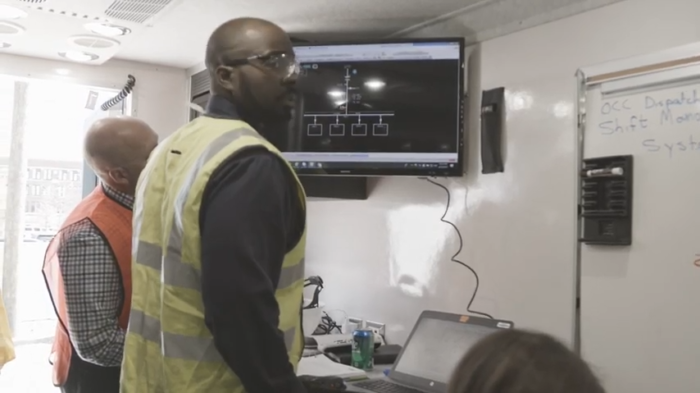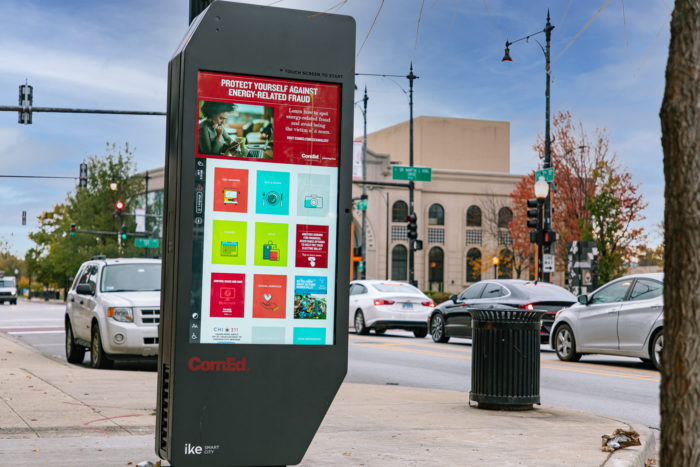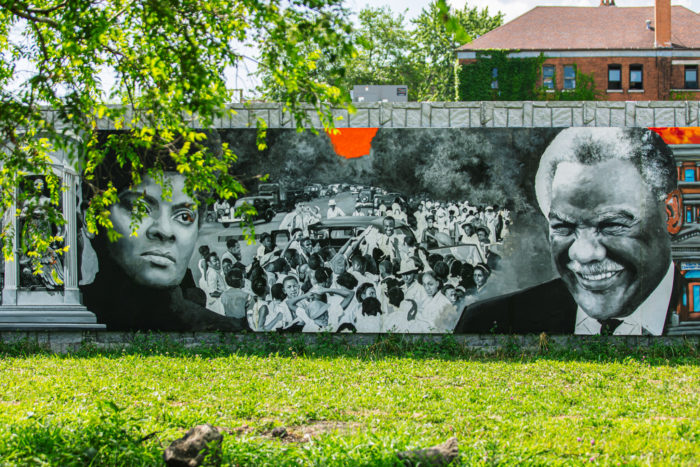ComEd helps historic Bronzeville neighborhood build brighter future
July 29, 2021
What is ComEd’s Community of the Future program?
The program partners with northern Illinois neighborhoods to deploy smart, sustainable and resilient energy solutions. This initiative addresses community resilience at multiple levels, ranging from advanced grid technology to science, technology, engineering and math (STEM) programming.
When did the program begin?
In 2016, Community of the Future launched in Bronzeville, a neighborhood just south of Chicago’s central business district. Bronzeville is the only neighborhood in the program.
What was the first project in Bronzeville?
Community of the Future began with the Bronzeville Community Microgrid — the first utility-operated microgrid cluster. A microgrid is a small power grid that can disconnect from the main grid to ensure that, even during extreme weather or a cyber or physical attack, power keeps flowing to critical infrastructure, customers and businesses.
The footprint of the microgrid includes more than 1,000 residences, businesses and public institutions, including 11 customers that provide critical public service including the headquarters of the Chicago Police and Fire Departments. In addition, the Bronzeville Community Microgrid has provided ComEd an opportunity to demonstrate a number of advanced grid technologies.

In 2019, ComEd conducted a test that successfully proved that the microgrid can keep power flowing to families, businesses and critical facilities in an emergency.
Why Bronzeville?
Bronzeville was chosen as a starting point to increase resiliency in the area and it houses infrastructure that would be vital to keep running during a mass power outage, like medical centers and police headquarters.
What other Community of the Future projects have been developed in Bronzeville?
ComEd has collaborated with Bronzeville to develop multiple projects which, like the microgrid, aim to help the neighborhood reach clean energy, resiliency and sustainable goals.
Projects:
- Smart City Kiosks: To provide families and businesses with more innovation, smart energy solutions, ComEd installed three Smart Kiosks to provide residents easy access to a WiFi hotspot with real-time information including weather, emergency alerts, public transportation route tracking, pedestrian wayfinding, local business promotion and neighborhood events.
- Electric Vehicle (EV) Charging Stations: Using a Department of Energy grant, ComEd is in the process of installing five public EV chargers to encourage community use and provide a clean, safe transportation service for the neighborhood. These will be multi-unit dwelling chargers for residents in Bronzeville.

Smart City Kiosks
- ARIS Renewable Energy Powered Off-grid wind and solar LED streetlights: ComEd helped install renewable energy (solar/wind/battery powered) lighting units at Chicago Public Schools, Beethoven and Dunbar. These streetlight units influence and inform STEM curriculum, keep students and families safer and contribute to renewable energy goals. ComEd is expanding this project to include Dyett and Perspective/IIT Math & Science Academy. This pilot was in partnership with the Chicago Housing Authority (CHA), Chicago Park District, Chicago Public Schools (CPS) and ARIS Wind.
Projects also include the promotion of STEM education among area youth:
- Bronzeville Renaissance Mural: To shine a light on the innovative story of the Bronzeville community’s past, present and future, local artists painted a mural on the outside of a ComEd-owned building in the neighborhood. With help from students at Bronzeville’s Little Black Pearl High School, this project provided them an opportunity to learn about the history of the neighborhood, community microgrid and future energy advancements.

Bronzeville Renaissance Mural
- The Bronzeville Film Festival: The Bronzeville Film Festival provided Bronzeville students with an opportunity to create short documentary films that highlight their neighborhood’s history and the role innovative energy technologies play in their community.
- Ideathon: A competition through which ComEd challenges high school students to create innovative technology concepts that have the potential to benefit their communities, while earning cash prizes.
